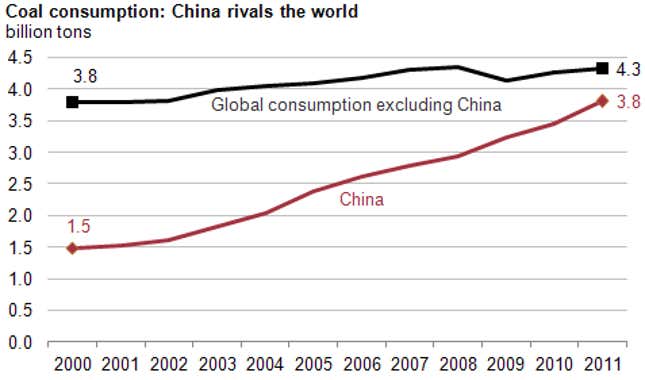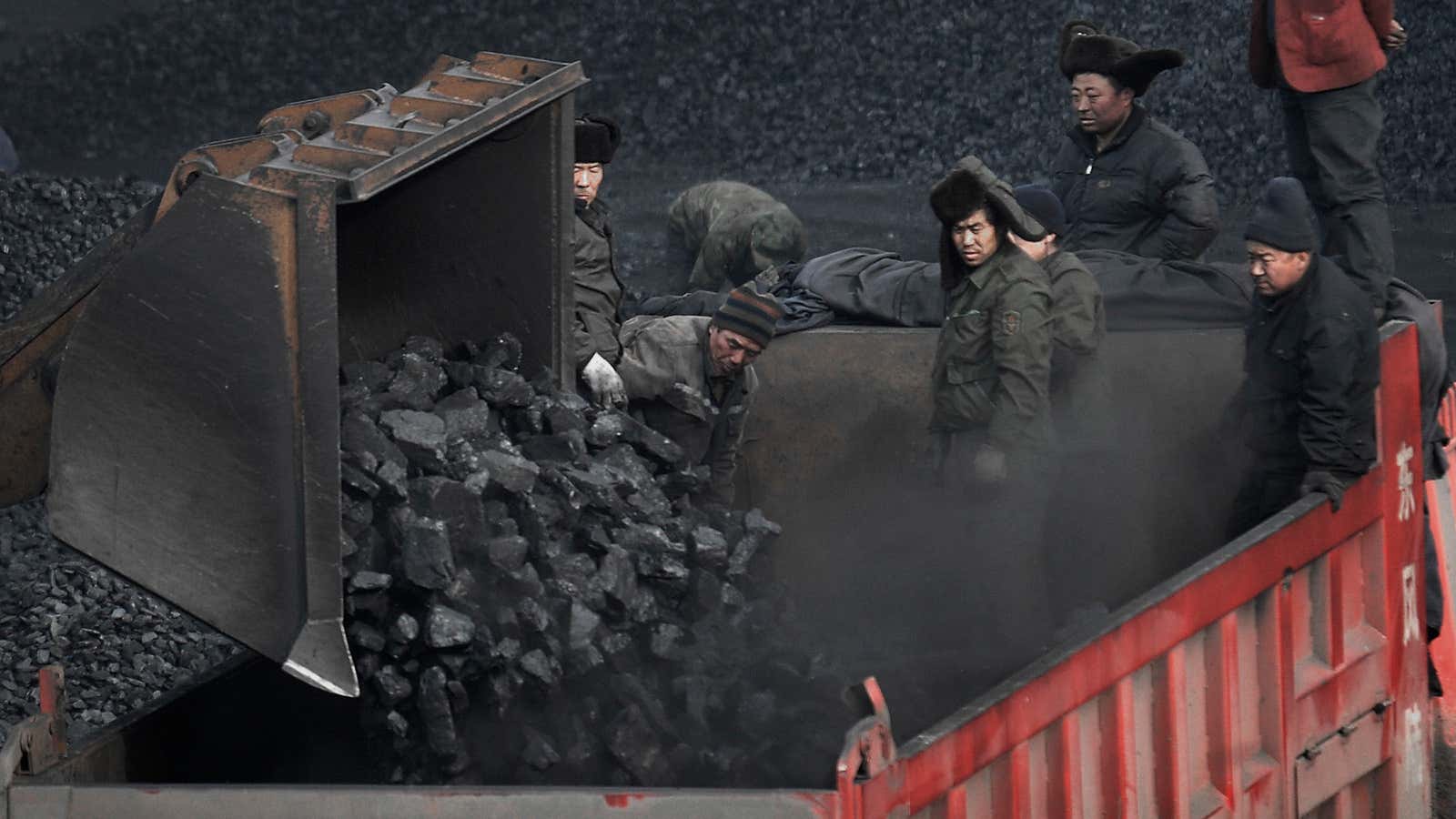China’s Ministry of Finance has announced that the country will levy a tax on carbon emissions, reports Xinhua. Policy experts in the United States and Europe have long argued that a carbon tax is the most effective way to reduce emissions of carbon dioxide and other greenhouse gasses, but implementing one in most large industrialized countries has always seemed politically infeasible.
In the same announcement, China’s Ministry of Finance said that direct taxes on resources, including coal and water, will also be forthcoming.
Details on the carbon tax are scant, but previous reports indicated that it would come into force by 2015 and might start at 10 yuan ($1.60) per tonne of carbon, rising to 50 yuan ($8) per tonne by 2020. Notably, the tax would be collected by local tax authorities, and not municipal environmental protection bureaus.
Aside from concerns about climate change, China’s carbon tax could be an effort to stem the country’s enormous appetite for coal, which is now nearly as large as the rest of the world combined.

The country’s coal imports are projected to reach 400-500 million tonnes (440-550 tons) by 2015, an increase of between 71% and 113% over China’s 2012 imports of 234.3 million tonnes of coal. But domestic production of coal in China dwarfs imports, at 3.66 billion tonnes in 2012. For comparison, the world’s second largest coal producer, the US, produces about a third as much coal per year.
Proposals for a direct tax on carbon are also being discussed in Europe as an alternative to the continent’s ailing cap and trade system for mitigating greenhouse gas emissions. In the US, Senators Barbara Boxer and Bernie Sanders have proposed a carbon tax of $20 a ton.
